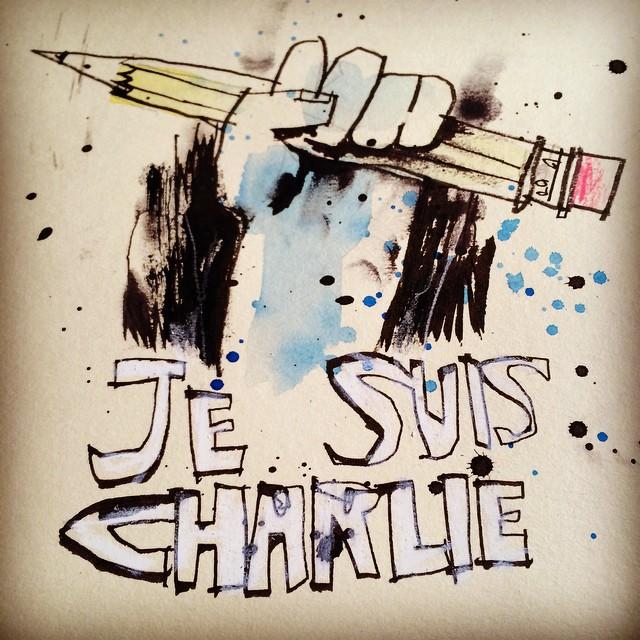Je suis Charlie
January 28, 2015
Terrorism. A word that detonates a trickle of fear across the nation and even across the world. In retaliation for the massacre of the journalists at Charlie Hebdo, people around the world have been supporting the words, “Je suis Charlie,” which means ‘I am Charlie’ in French. Despite the need for peace, it fails to address the “us/them” tensions that rages between the liberal west and the Muslim east. “‘Je suis Charlie’… Not only fails to address the urgent cultural and political problems that led to the massacre, it has made them far worse,” says Saree Makdisi, from the Los Angeles Times.
This sudden act to identify with Charlie Hebdo is to mourn the loss of the journalists and to express that the people of France have the freedom to express their own views; the freedom of speech. Melissa Aharrah, a senior who previously spent the summer in France, comments that, “I think Je suis Charlie is a shock to Americans because we don’t realize the gravity of our freedom of speech. France is a democratic nation… but to an extent. We are fortunate to have been born with the rights we have.” But the problem that comes with France and the subject of freedom of speech has strict legal constraints against hate speech and speeches that can be taken as political violence.
Charlie Hebdo has been known to create derogatory cartoons, strictly targeting religions and Muslims as well. They use these satiric cartoons to expose the flaws of the powerful and the wealthy, by using a taunting and baiting display of racism. And the young men who carried out the attacks in Paris, took the bait. “Their act of violence was clearly wrong –and at least as dangerous in the long run—is the binary cultural and racial logic behind it,” said Saree Makdisi from the Los Angeles Times.


